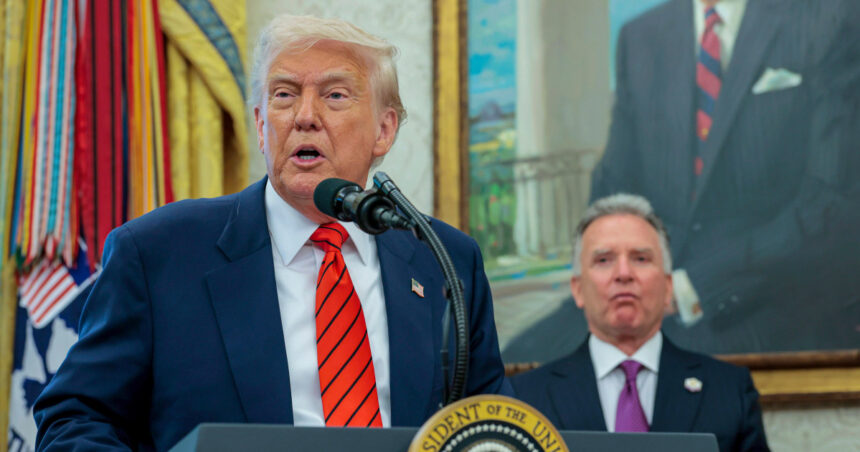In the latest developments at the crossroads of technology and politics, several significant stories have emerged over the past week.
A striking report by The New York Times unveiled a timeline detailing a $2 billion deal involving World Liberty Financial, a cryptocurrency firm established by the families of Donald Trump and Steve Witkoff, the president’s envoy to the Middle East. This sizeable investment was received from a government-backed firm in the United Arab Emirates just before the Trump administration’s controversial decision to sell powerful computer chips to the UAE. The disclosures raise serious questions about the potentially questionable relationships the Trump family has fostered with significant tech investors in the Middle East amidst ongoing policy decisions.
Additionally, Trump has moved away from his previous hardline stance on China by withdrawing the nomination of Landon Heid for an important position at the Department of Commerce. Heid was nominated for the role of assistant secretary for export administration, a position that would involve oversight of export restrictions pertinent to dealings with China. The withdrawal has led to speculation about a potential shift toward a more conciliatory approach regarding U.S.-China relations.
In the realm of extremism, police in Colorado reported that a teenage shooter, responsible for injuring two students in Evergreen, was radicalized by an extremist network. Investigations revealed the assailant’s troubling interest in Nazi ideology, white supremacist rhetoric, and prior school shootings, highlighting serious concerns about youth radicalization.
Meanwhile, Politico noted that Apple seems to be modifying its artificial intelligence models in response to Trump’s criticisms of diversity, equity, and inclusion initiatives, suggesting a strategic pivot from the tech giant.
Bloomberg pointed to a newly surfaced collection of emails tied to the late Jeffrey Epstein, further complicating the narrative surrounding his connections with Donald Trump and raising unsettling questions about their past interactions.
On a different note, an anonymous group has launched a website aimed at cataloging individuals who criticized Charlie Kirk, a right-wing activist recently killed in an incident at a Utah university. This initiative, dubbed the Charlie Kirk Data Foundation, seeks to crowdsource critical remarks directed at Kirk, intensifying the discourse surrounding his legacy.
In terms of voter data, an NPR report revealed that over 33 million voters have had their personal information processed through a controversial database used by the Trump administration to ascertain voter eligibility. This action has emerged amidst ongoing false claims by Trump and his supporters regarding supposed noncitizen interference in U.S. elections.
Lastly, Senator Elizabeth Warren is pressing Defense Secretary Pete Hegseth for clarity regarding a lucrative contract awarded to xAI, an artificial intelligence firm led by Elon Musk. The company has faced scrutiny over various scandals, including the behavior of its chatbots, which have allegedly incited violence and promoted antisemitism.
This amalgamation of stories serves as a pivotal reminder of the entwining paths of technology and governance, each influencing the other in increasingly profound ways.







